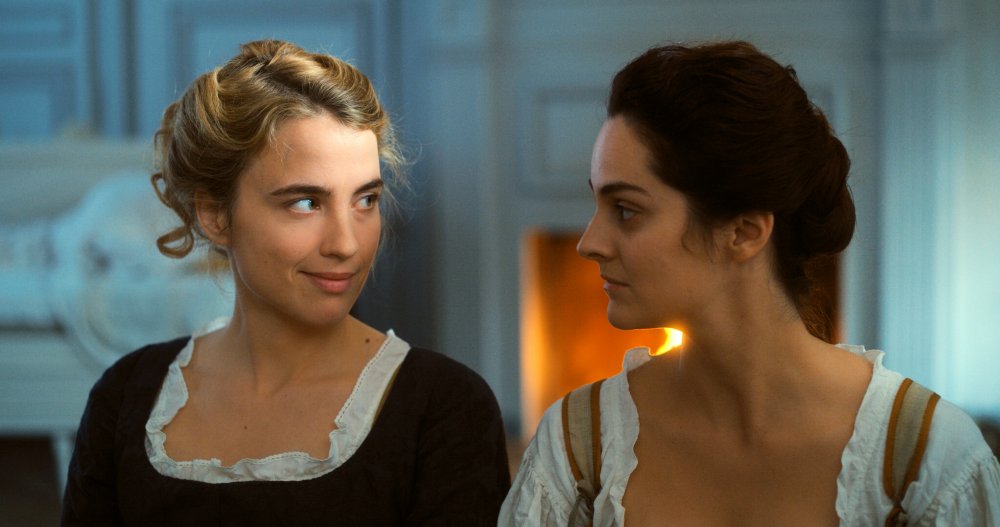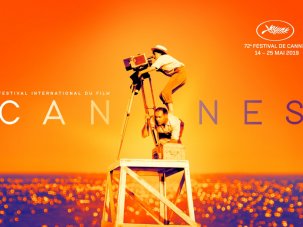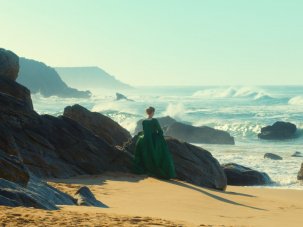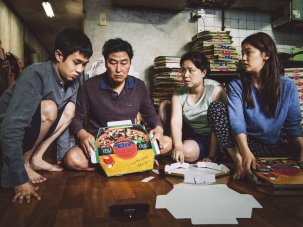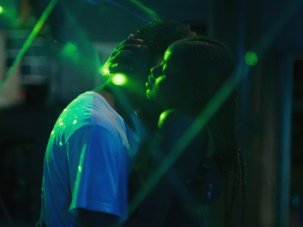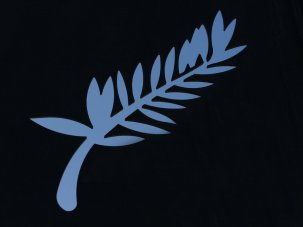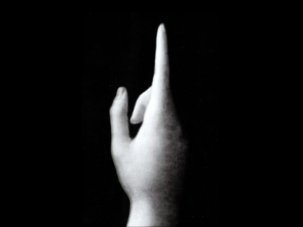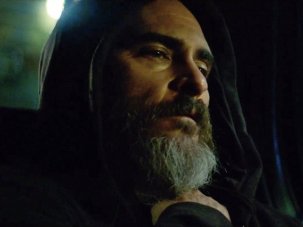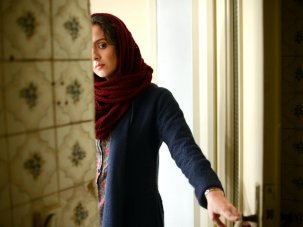If only Cannes jury deliberations were like top secret government files and released after 30 years. I for one would kill to know what Wim Wenders and Krzysztof Kieslowski thought of Jane Campion’s debut Sweetie (it got booed by most critics) and Spike Lee’s Do the Right Thing, both of which went home empty-handed in 1989 (sex, lies and videotape got the Palme). Instead we have to wait for what little gossip seeps out.
The makeup of the jury is a little different this year: director-heavy, with six out of the nine jurors primarily filmmakers. Does that mean they’ll be more adventurous? You can spend ages wondering how the tastes of every jury member might affect the fate of each film. Or look back at the recent trend that the Palme goes to an overdue but established director, but not necessarily for their finest film. Or you could consider the critical reception of the films – but from our point of view it’s rarely the one that should win that gets garlanded.
As ever, this year there is little consensus around one title (see below). If I were to pick a film with my head and heart it would be Céline Sciamma’s Portrait of a Lady on Fire. It’s a beguiling period romance thoroughly deserving of the top prize anyway, but Cannes’ lack of prior female Palme winners (just Campion, 26 years ago for The Piano, and she shared that) gives it the edge. Its two leads, Adèle Haenel and Noémie Merlant, are certainly worthy of the Best Actress prize. And French cinematographer Claire Mathon would be a shoo-in for the technical Vulcan award, being responsible for both the restrained painterly visuals of that film and the woozy lyricism of Mati Diop’s Atlantics (an oneiric zombie tale about migration and exploitation which I doubt will leave empty-handed).
If there’s an overdue winner it’s Pedro Almodóvar, but Antonio Banderas is equally deserving of the Best Actor prize for his turn in Pain and Glory as an Almodóvar proxy at the end of his filmmaking career looking back on his life. If directors have a sweet spot for films about filmmaking then Quentin Tarantino, who 25 years ago won for Pulp Fiction, has a slim chance at his second Palme. Leonardo DiCaprio would easily get best actor but it might be seen as favouritism for Alejandro González Iñárritu to reward his lead in The Revenant.
I didn’t see Xavier Dolan’s Matthias et Maxime but reportedly it’s one of his best and the 30 year-old Cannes veteran has got second and third best prizes before.
One final thought: wouldn’t it be great if a comedy won the Palme? Bong Joon-ho’s con-family riot Parasite is certainly deserving but after Shoplifters last year, will the jury reward another East Asian story of inequality? Let the guessing games begin.
Nick James
I find it impossible to say even what ought to win this year. The Palme candidates – for me, Almodóvar, Bong Joon-ho, Sciamma and Tarantino – made such vastly different sorts of film they’re hard to compare. Push me and I’d say I’d like Portrait of a Lady on Fire to win, but that’s because it’s such a long time since a woman won, not because it’s better than the other three.
Jonathan Romney
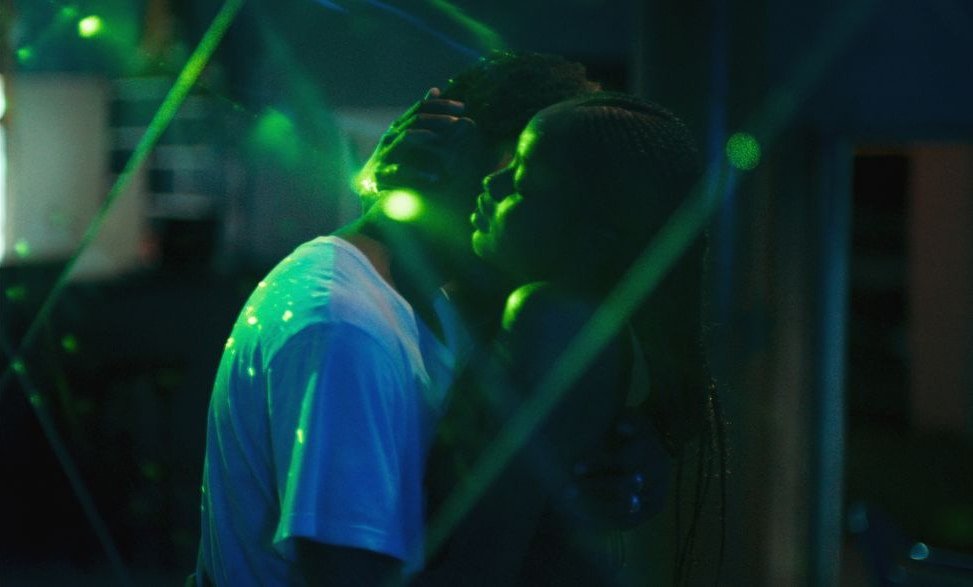
Atlantics (Atlantique, 2019)
This was a really rich year – perhaps not absolute vintage (although you can never quite measure these things until a year or two later), but it was an energetic one that fueled arguments, and contained a handful of films that persuaded pretty much everyone of their quality. I suspect Céline Sciamma’s Portrait of a Lady on Fire will win the Palme d’Or, and it would be a deserving choice, not only because it’s so much a film of the moment: it’s directed with precise elegance and the duo of Adèle Haenel and Noémie Merlant surely deserve a shared Best Actress prize.
I’d like to see Mati Diop’s Atlantics win something – say, Best Direction – for its invention and individuality. And Best Actor for me is Roschdy Zem for his contemplative cop in Arnaud Desplechin’s Oh Mercy!. My Palme d’Or, however, for the film that gives the most pleasure, shows the most perfectly honed directorial control, and speaks most pithily about the contemporary economic state of the world is Bong Joon-ho’s ripely mischievous Parasite.
Becca Harrison
Far and away my top pick for the Palme d’Or after six days on the Croisette was Celine Sciamma’s mesmerising Portrait of a Lady on Fire. What started out as a seemingly conventional heritage film about a portrait painter and her reluctant subject transformed into a sensual and evocative story that encompassed an array of women’s experiences, from the expansive landscapes of their love to the tiny, pointed details of their everyday domestic lives. It made me feel like I was inside every frame with its ensemble cast – who all put in excellent performances – and it’s an emotionally intelligent film that I keep returning to unexpectedly with subconscious awe. I can’t wait to see it again.
Highly commended films that didn’t quite eclipse Portrait for me were Jessica Hausner’s Little Joe (a creepily weird dark comedy with arthouse shades of Little Shop of Horrors) and Mati Diop’s Atlantics (which got off to a slow start but left me with chills at the end). My heart lies with Portrait but I’d be happy to see any of these films win the coveted Palme. We’re long overdue a woman winner, there are some more than worthy contenders this year – and if history is anything to go by, a tragic story about a female artist on a beach might just swing it.
Caspar Salmon
The film I most loved in competition this year was Celine Sciamma’s immaculate and glowing Portrait of a Lady on Fire, which sees her attain a new level of grace. This film is so touching as a love letter to Adele Haenel, who has never been more enigmatic, commanding and beautiful. There’s a cheering, combative queerness to this film, in its absence of men and its story of independent women who do stuff, who run and jump and swim and paint and read and joke and have sex. And in its discourse on painting and looking, this film actually embodies the female gaze that it’s all about in a way that is downright thrilling.
Katherine McLaughlin
Portrait of a Lady on Fire is a captivating and masterfully directed period piece that expresses what what freedom means to each of the female characters through the things they desire most. Possessing a slow-burn intensity, it eventually ignites with a blistering passion as the women bond. Céline Sciamma is a director working at the top of her game and it would be so satisfying to see her take the prize.
Ela Bittencourt
I found Céline Sciamma’s Portrait of a Lady on Fire to be breathtaking and would love to see it win in Cannes – if not the Palme d’Or then Best Director or the Grand Jury Prize, not to mention a prize for its main actresses, Adèle Haenel and Noémie Merlant. The film is formalist, which took some of my colleagues by surprise, yet it seethes with quiet passion and is eloquent on what it takes to truly see, and acknowledge, another person’s being.
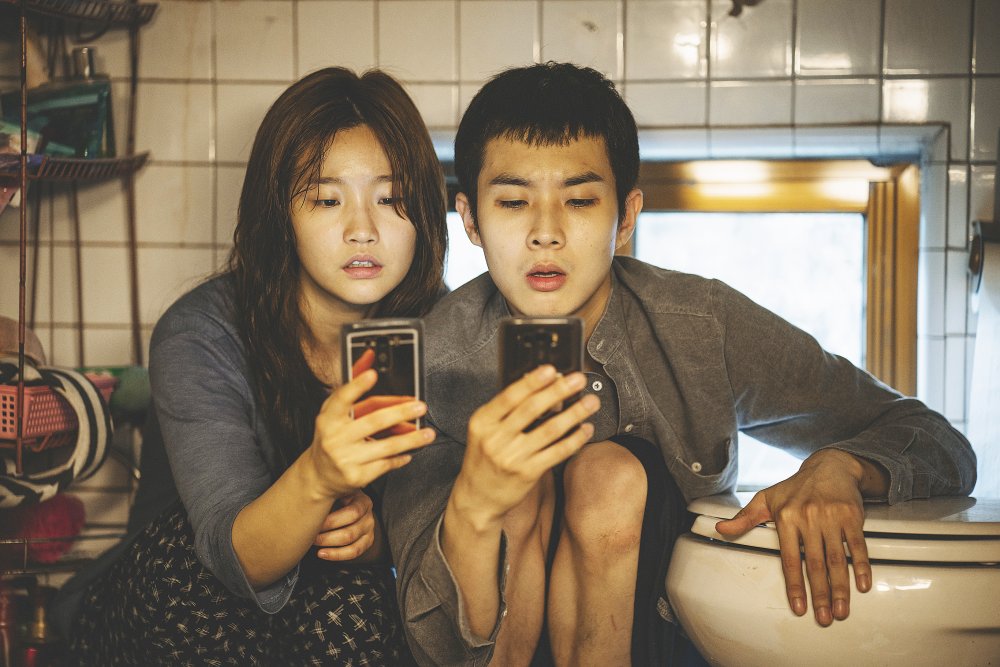
Parasite (2019)
Still, I am split, since I also truly loved Parasite. Bong Joon-ho’s social satire is so effortless and his writing so fierce that it’s hard to resist thinking it’s the most perfect, most thoroughly accomplished film this year. I’d also love to see a prize for Kleber Mendonça Filho and Juliano Dornelles, whose Bacurau is the most audacious and surprising film I’ve seen in Cannes this year.
Ella Kemp
My instinct is screaming for Bong Joon-Ho’s Parasite to win the Palme. The experience watching this jet-black social critique involved screaming, yelping, laughing and wincing at the severity of such giddy and horrific entertainment in turn. This reaction filled the entire auditorium, Bong’s mastery climaxing with glorious cacophonous entertainment.
John Bleasdale
Parasite by Bong Jo Hoon was a brilliant return to form after the Netflix curiosity of Okja. A genuinely masterful piece of incisive social satire with some of the best laugh out loud comedy and some of the darkest insight about social inequality.
I also loved Once Upon a Time in Hollywood, but that film has no need of such gongs to find an audience. And I wouldn’t be unhappy if Celine Sciamma’s Portrait of a Lady on Fire took home an award, perhaps in the acting department with both leads Adèle Haenel and Noémie Merlant making for worthy contenders.
Geoff Andrew
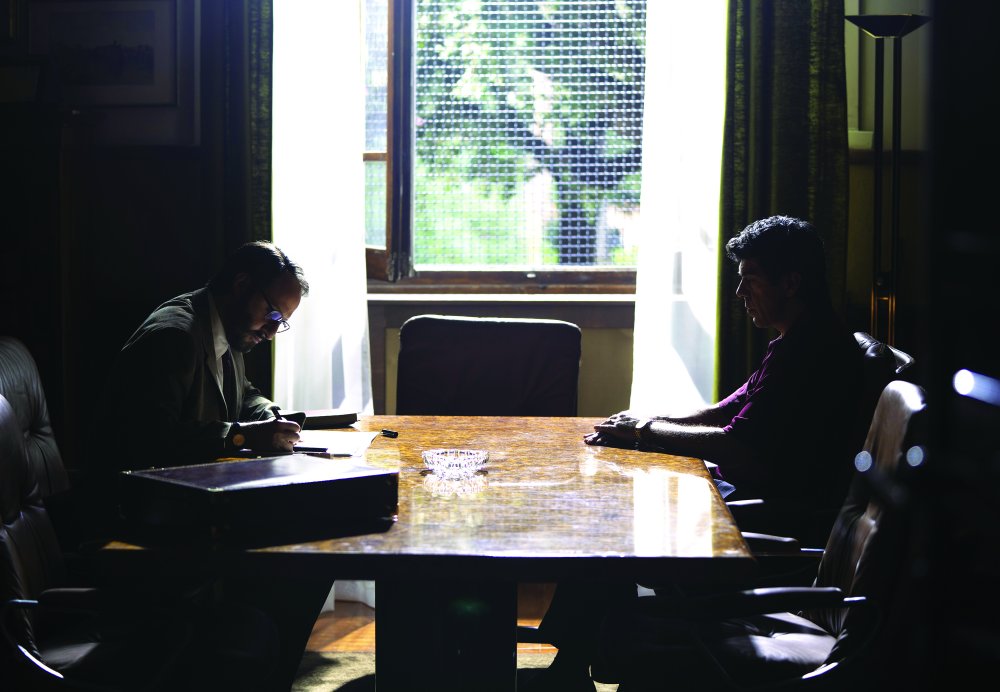
The Traitor (Il Traditore, 2019)
While I very much liked Almodóvar’s Pain and Glory, Loach’s Sorry We Missed You, and the Dardennes’ Young Ahmed, they all felt pretty much par for the admittedly superior course for those particular filmmakers. I also had a lot of fun watching Jarmusch’s The Dead Don’t Die and Bong’s Parasite.
But the film that perhaps impressed and even occasionally surprised me the most – at least of those in the main competition – was Marco Bellocchio’s The Traitor, about a made-man, Tommasso Buscetta, speaking up about the Sicilian Cosa Nostra in court. Based on real-life events of the 1980s and 90s, it boasts a splendid lead performance by Pierfrancesco Favino, displays Bellocchio’s storytelling expertise at its most imaginative and assured, and includes several superbly realised moments that will stick in the memory for years.
Giovanni Marchini Camia
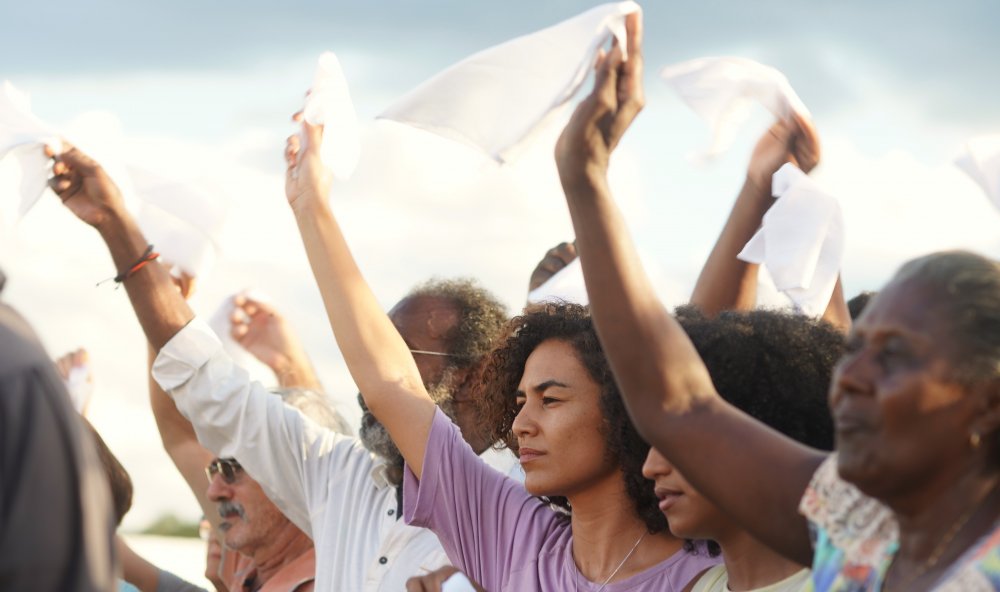
Bacurau (2019)
I’m hardly a Cannes veteran, but in the six years I’ve attended the festival, I was never left this disappointed by the main competition. I managed to catch 16 of the selection’s 21 titles, and only two struck me as excellent: Parasite by Bong Joon-ho, and Bacurau by Kleber Mendonça Filho and Juliano Dornelles. Although Parasite is the more polished of the two, very effective in everything it sets out to do, I would give the Palme d’Or to Bacurau for sheer ambition and audacity. As much as I enjoyed Bong’s film, I’m not in a particular rush to watch it again, whereas I can’t wait for the opportunity to revisit Bacurau and try to get a grip on its slippery madness.
-
The Digital Edition and Archive quick link
Log in here to your digital edition and archive subscription, take a look at the packages on offer and buy a subscription.




